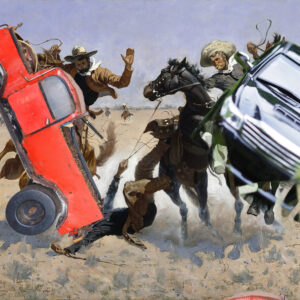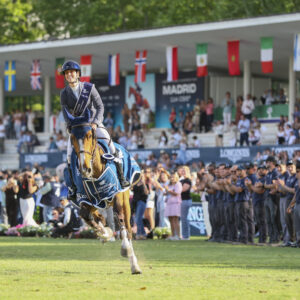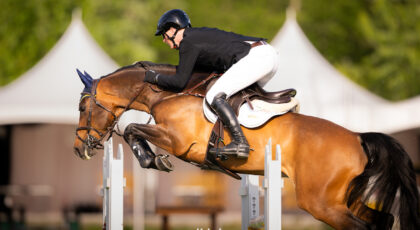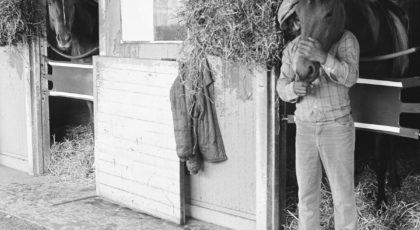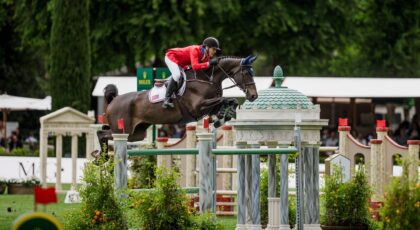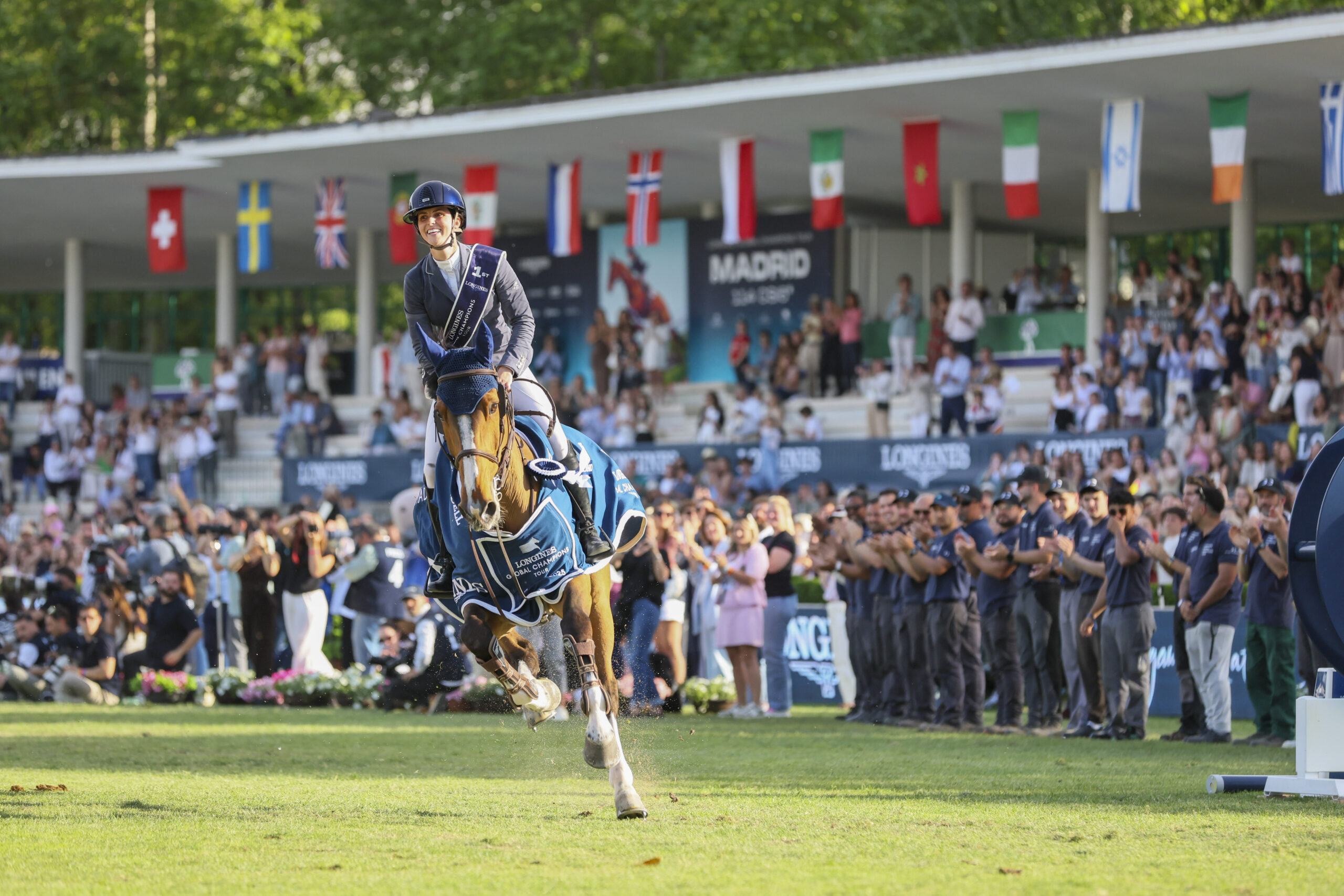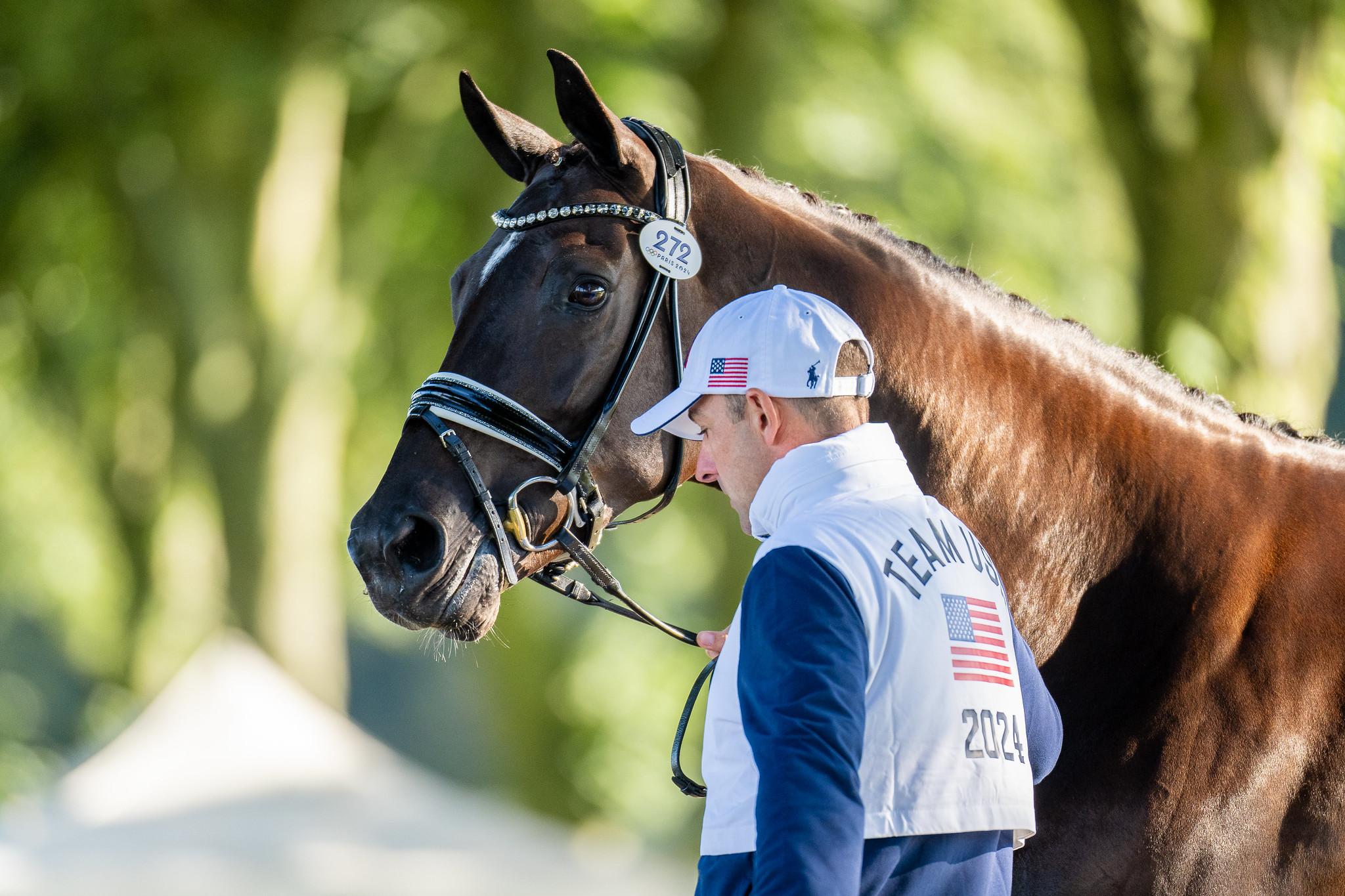Due to COVID-19 canceling many of the bigger events, the local horse show I rode in this summer was better attended than usual.
The tiny arena heaved under the load of 20 plus horses, and it felt closer to a mosh pit than a ring. Luckily, the handsome, if inexperienced, gelding I rode for a friend was brave and willing. As we made our way around, I realized that in the handful of times that I have had the honor of showing, I have never shown the same horse twice. My ragtag portfolio of horses, events, and even the occasional ribbon has everything to do with socioeconomic class.
Acknowledging that class divides exist in America is taboo. Even speaking about it goes against the fundamental ethos that we are spoon-fed from childhood—come from nothing, and if you work hard enough, you can make it big. I’m still a believer in honest hard work and that America is a place of opportunity. Still, socioeconomic status is complicated and impacts all of us. It also makes it harder for some to achieve their dreams and easier for others.
Socioeconomic status is more than good choices, hard work, or even income. Instead, it’s a mix of access to resources, generational wealth, education, and quite a bit of luck. Then all these things are tangled together like a box of stirrup leathers at a 4-H tack sale. Pulling it all apart is both uncomfortable and clumsy. Despite its messiness, though, I think about class every time I walk into a barn or drive past a paddock full of horses.
In some ways, horses demonstrate my socioeconomic advantage. I grew up middle class, and while my parents had working-class jobs, they were comfortable. Their parents and their parents’ parents were well educated, owned their own homes, and were financially stable. I never had to worry about supporting my family growing up, which left more time and resources for pursuing other things. I also had family members with horses, so I always had free or low-cost access to something I could throw a saddle on.
When I went off to college, my class advantage with horses compounded. I got jobs at horse farms because no one had to babysit me to make sure I did not get kicked. I attended a university with an equine program. While I majored in English, I found ways to expand my equine education further by joining clubs, working odd jobs in agriculture, and making friends with people who knew more about the industry than I did. From these friends, I learned the language of the horses, the value of a good trainer, and how to pick out jodhpurs even if they were secondhand or from the deep recesses of the clearance rack.
My bank account dipped into double digits many times in my 20s. Nevertheless, because I was well-spoken, had a foundation in horses and a network of equestrians around me, I had the opportunity to ride everything from someone’s rescue pony to someone else’s Friesian import from the Netherlands. I had reached a knowledge base and a set of connections in the equine industry that surpasses my upbringing.
Horses taught me about my class disadvantages as well. Because I did not grow up with a horse of my own or taking proper lessons, the gaps in my knowledge and riding are massive. I also learned most of what I know on green or unfinished horses owned by other people. My survival instinct from this has left me with bad habits that I still fight every time I put the reins in my hands. Safe, school horses are often an overlooked luxury.
I have been very blessed in my horse life. There have been many magical fairy-godmother-like people who handed me a lead rope and believed in me. Many doors were shut as well because I did not have the horse, the money, or the markers that allowed me to pass among those who did. I am also short, round, outspoken, and I laugh too loud, all things that give away my station.
You may be wondering, dear reader, why the heck we should be thinking about class. “Horses are expensive.” You might say, “This has always been the case.” Or, “If you want a horse, consider another career. We all make sacrifices.”
All of these have some truth in them. I do not think it’s a human right to own a horse, nor do I believe an individual should consider getting into riding without a clear understanding of the responsibility they entail.
Despite this, there are many among my generation who have slid down the hayloft ladder of economic stability. In my case, I have more education and more experience than my grandfather did at my age, and he had the same job I do now. He was able to afford several acres, a few horses, and a family. I cannot. The buying power of the average wage has not budged in 40 years, yet the prices of things like housing, education, childcare, and healthcare have skyrocketed, leaving little or no extra funds for things like horses.
As for adult me, money feels as the poet Tracy K Smith wrote, “a mysterious lover, Who went out to buy milk and never came back.” I work many jobs and pinch many pennies. Things are looking up for me in some ways. However, the relationship between wages and the cost of living has left me and many others with a calculator continually running in our heads.
I still ride and take lessons as when I can afford the gas and the trainer, but I dream of a horse of my own. I stash away tiny bits into a savings account, often 50 cents at a time. “I will own my own horse one day,” I tell myself, “but only when I can afford the vet bills.”
It is also important to note that horse ownership is not the ultimate sign of economic privilege. There are working- and middle-class people who walk the delicate tightrope of horse ownership. But there are fewer of them than there once were, and they are older as well.
Yes, the horse industry will still exist if more and more people are priced out of it. However, it will also lose much of its vibrancy and relevance. Fewer people can participate. Classism, like racism, gains much of its power in the vacuum of silence. If we are more honest about money and class privilege, we can start addressing the hard truths of it.
Just like the little gelding I rode in that horse show, the best thing to be is brave and willing. It is time to speak up.


 September 16, 2020
September 16, 2020 








